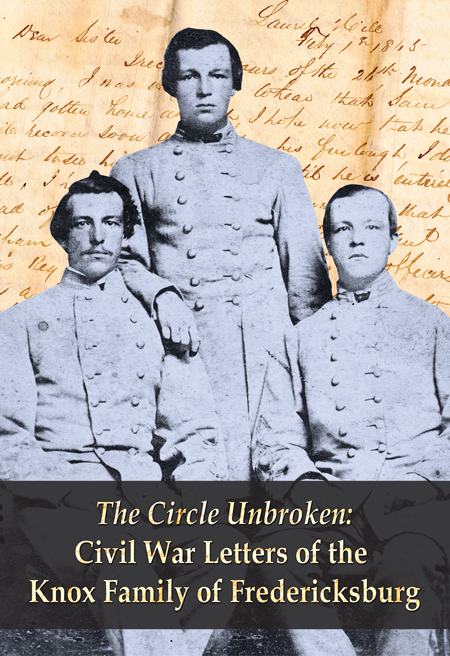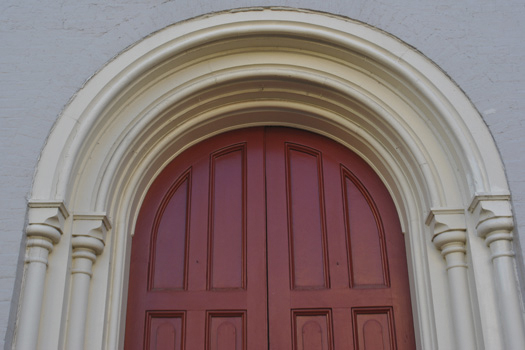
Thomas F. Knox (1807-1890) was from Culpeper and came to Fredericksburg in 1821 to work with his uncle William A. Knox and became a “wheat speculator and flour manufacturer” according to Quinn’s history of Fredericksburg. The Central Rappahannock Regional Library has part of a diary when Knox was in his 20’s describing a trip to South America with William looking for new markets. At the time he traded tobacco and flour for hides, sugar and coffee which he could sell in the cities along the eastern seaboard.
Knox, like many of his generation, was more of a general merchant and businessman. He was a grocer in 1830, Steam line agent in 1834 and Silk company agent in 1836. By the 1850’s he was busy as a director of several companies: Fredericksburg Insurance Company, the Canal Company, the Water Power Company and the Bank of Commerce. He retired from business during the Civil War years. That allowed him more time to serve St. George’s.
He first was elected to the Vestry in 1836 and served until his death in 1890. That’s 54 years, impossible today. He purchased pew 56 at the current church in 1849 and served on the building committee that directed its construction. He was secretary of the Vestry 1854 and wrote a letter July 29, 1854 after the fire in the chancel expressing thanks to the fire company and citizens for helping put out St. George’s fire. He was senior warden from 1874 until his death.
Knox was a significant landowner. With 14 children they needed a large dwelling. In 1857, he purchased what is today the Kenmore Inn, 1200 Princess Anne Street, Lot 95 and is known as the Knox House. He bought that property from another St. Georgian, A. K. Philips .
During the Civil War, he was of one of the 19 Fredericksburg citizens arrested in August 1862 in retaliation for the Confederate imprisonment of seven federals for disloyalty. 6 of the 19 were members of St. George’s which had the most members of any Church from those arrested: 1. Thomas Knox 2. John Coakley 3. Dr. James Cooke 4. John F. Scott 5. Montgomery Slaughter 6. Thomas B. Barton.
While all his sons fortunately returned from the war, it was an economic disaster for the family. In 1860, Thomas Knox owned $50,000 worth of real estate and $22,000 of personal property (much of that surely slaves). But by the time the census taker came around in 1870, that $72,000 fortune had shrunk to just $8,000, including just $500 of personal property.
